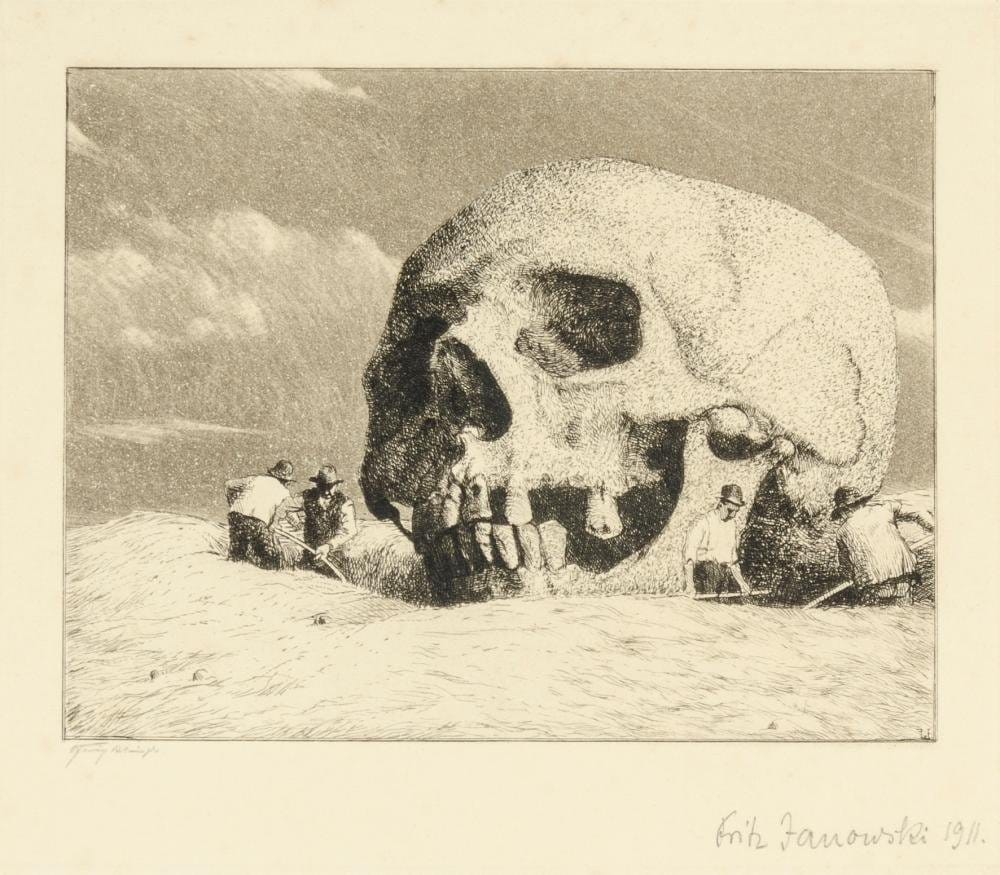Radioactive Love
Like a radioactive substance, Love is leaking into the world from the porous walls of the Church, leaving everything irreparably changed.

This piece was inspired by the convergence of a few different conversations, including a seminar on Ivan Illich's essays "Gospel" and "Mysterium," and a recent presentation I heard by Tobias Bartneck on kenosis and the church.
Like a radioactive substance, Love is leaking into the world from the porous walls of the Church, leaving everything irreparably changed.
The death of Jesus Christ on the cross inaugurated a radical and new reality of Love on the earth, giving birth to the Spirit community which would carry this burden of love into all the world. A new people emerged who were no longer defined by tribal affiliation, but by this strange and dangerous neighbor love.
However, with the appearance of the highest good embodied by the lowest point –the cross –we discover that a new possibility for evil has also entered the world.
With the appearance of God's extravagant love, we begin to discover the profound horrors which can accompany man's perverse imitation of this divine love.
This shadow which is cast with the dawning of God's Son holds within it the most profound threat which humanity has ever faced, and for which we likely are not prepared. This possibility inexorably accompanies the new form of freedom which we encounter and receive through the life, death, and resurrection of Jesus Christ.
If humanity's most pressing and singular threat prior to the cross of Christ was the problem of vengeance (the infinite loop of violence entailed by revenge), then making a decisive step beyond this problem also entails opening ourselves up to a new realm of horrors.
After vengeance comes…? How can we describe this new and mysterious evil?
We see this new cruelty in the pitying face of the psychiatrist, we glimpse it in the eyes of the bureaucrat, and we cannot help but see its fingerprints all over even the most mundane employment contract.
From our innermost personal narratives to the grand mythos of our civilization, we are everywhere confronted with this demand to love and be loved.
With the arrival of God's love in Jesus Christ, we discover the infinite demand of love, and with it, we confront the horrors of our collective will to satisfy this demand. What evil could be in store if we try to give ourselves what we ask for?
As a species, human beings have been seeking the return to the Womb from the moment we were born. What happens now that the most potent love to have ever exist has entered our world? I fear that we risk devouring ourselves.
Some have called this the spirit of Moloch, a drive for infinite optimization which we now experience under the aegis of the superego's infinite command to enjoy. Each human being as a baby sucking at the Mother's teet, no object relations or individuation, just the oceanic feeling of Love washing us away forever and ever.
And who will deliver this to us, this all consuming love which we demand?
This responsibility will increasingly fall to the sovereign state, that manifestation of our ability to organize and act collectively. More services will be administered, more data will be collected, more processes will be defined in order to deliver what human beings demand. The psychiatrist will dispense another pill.
But can the machine deliver to us Love?
Only if a monstrous perversion is committed. Safety must become the absence of risk, health must become the postponement of death, and Love must become the extinguishment of suffering. This horrific substitution is the shadow which comes into the world with the rising of God's Son.
As the nations gather together to satisfy the ever intensifying human demand for love, made all the more palpable by the too-muchness of God's love which leaks from His Church into all the world, we may yet find that the gift we give ourselves is not what we demanded at all.
All along, we wanted what only God can give and what only human beings can receive through communion with Him – a loving relationship.
We live in age whose immense dysfunction and breakdown must, I believe, be attributed in some significant measure to the effects of Christianity and the Church. We might even see the secularism which is choking the West like a Christian heresy, a perversion of Christ's love (although I've elsewhere written about other models which contest this view). It's precisely this perplexing situation though which I'm investigating, and which we find reflected in Ivan Illich's dictum that "the corruption of the best is the worst."
If Christianity is true, it must also be the case that its truth introduces into the world new and more profound dangers than had ever existed before its full appearance. Today we all run the risk of becoming mutants of love.
